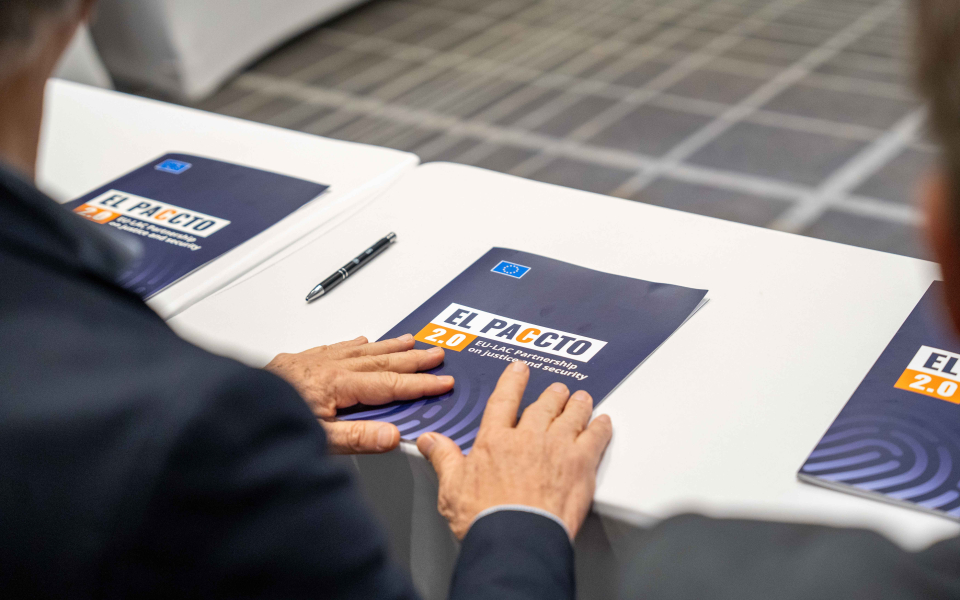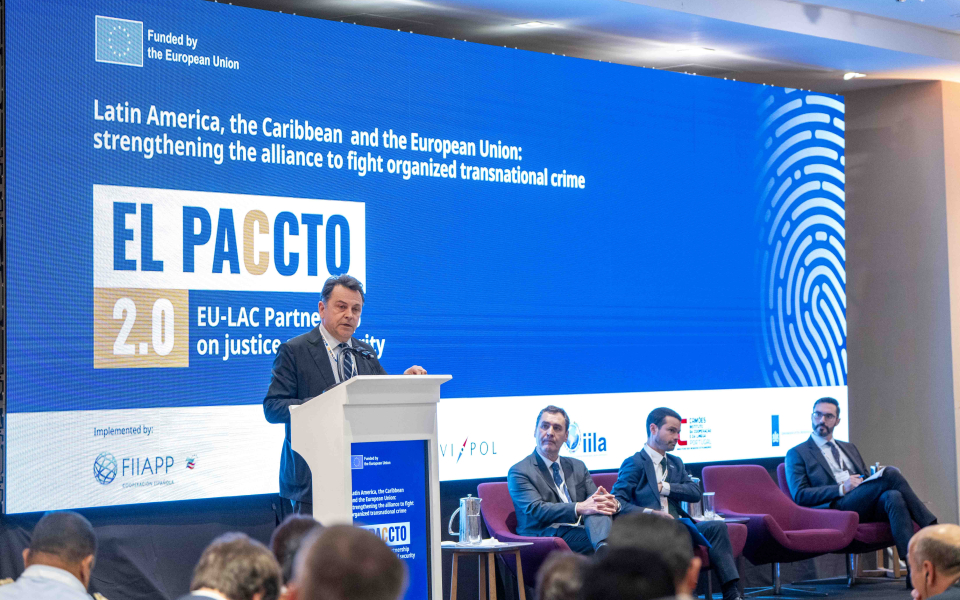12 de marzo 2024
New means to fight transnational crime between the EU and Latin America and the Caribbean with the launch of EL PAcCTO 2.0
Following the launch of the agreement on EL PAcCTO 2.0 in November 2023, today the new programme to combat transnational crime was officially launched in Panama City. The new programme will further enhance cooperation on justice and security between Latin America, the Caribbean, and the European Union. With European funding of 58.8 million euros, the program will operate until the end of 2027 and focus on strengthening the rule of law and combating organised crime in the region.
Commissioner for International Partnerships, Jutta Urpilainen: “EL PAcCTO has successfully brought European and Latin American partners together in the fight against organised transnational crime. As a key deliverable of the EU-CELAC Summit of July 2023, I am delighted that this new phase, which will now include our Caribbean partners, will boost our joint investment and commitment to the rule of law, increase the capacity of criminal justice systems and respond appropriately to the different types of crime - including human trafficking, the international drug trade and cybercrime.”
Panama's Deputy Minister of Public Security: “Combined and concentrated efforts are essential to address common security threats. That is why we reiterate our determination to continue working together for the benefit of dialogue between the two sides”.
The Portuguese Minister of Justice: “The launch of EL PACCTO 2.0 is a very clear sign of the commitment to multilateralism. The first phase of EL PACCTO was very relevant in terms of cross-border, trans-regional and international strengthening and consolidation around the joint needs of prevention and combating organised crime”.
EL PAcCTO 2.0 represents an important change from its predecessor, with a doubling of its budget and expanding its structure to achieve more sustainable and far-reaching results. One of the key innovations of this phase is the inclusion of Caribbean countries, reflecting a commitment to promote multi-regional dialogue and cooperation in the fight against organised crime. The programme will be implemented by an EU Member State Consortium led by FIIAPP (Spain), together with its partners from France (Expertise France and Civipol), Italy (IILA), Portugal (Camões) and the Netherlands.
The launch event featured several high-level meetings, including the Latin American Committee on Internal Security (CLASI) Ministerial Meeting and the EU-Latin America Joint Justice Policy Cycle. These gatherings provided a platform for the development of public policies aimed at tackling specific crimes such as cybercrime, human trafficking, firearms trafficking, environmental crimes, and drug trafficking.
EL PACCTO 2.0 will adopt a comprehensive approach to the fight against organised crime through three main lines of action: strategic, institutional, and operational. This approach will enable the program to work in a more specialised, in-depth, and coherent manner and ensure that efforts are effectively coordinated and impactful.
Background on EL PAcCTO
The first phase of EL PAcCTO was configured as an ambitious regional and trans-regional cooperation programme called to make a difference in the political, institutional, technical and operational fields, to the fight against organised crime along the entire criminal chain, with a comprehensive approach and perspective.
To date, the programme has:
- Promoted the creation of and support to structures and mechanisms fostering regional and bi-regional cooperation in the field of justice and security: this is the case of the CLASI (Latin American Committee on Internal Security), AMERIPOL or the justice policy cycle;
- Encouraged countries to identify current and potential criminal threats to agree on joint priorities in the fight against organised;
- Promoted the creation of specialised police networks to fight, for example, against online sexual child abuse; cryptocurrencies and anti-money laundering actions; arms trafficking or trafficking of human beings.

